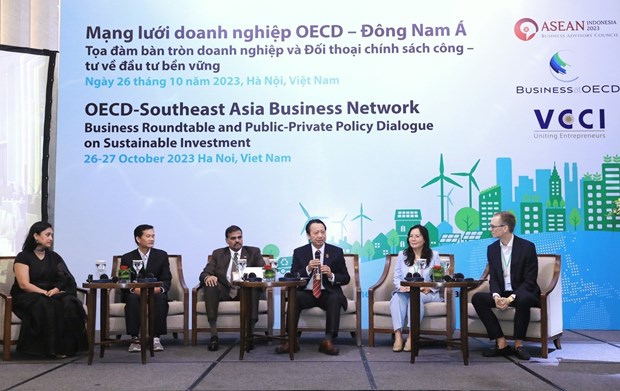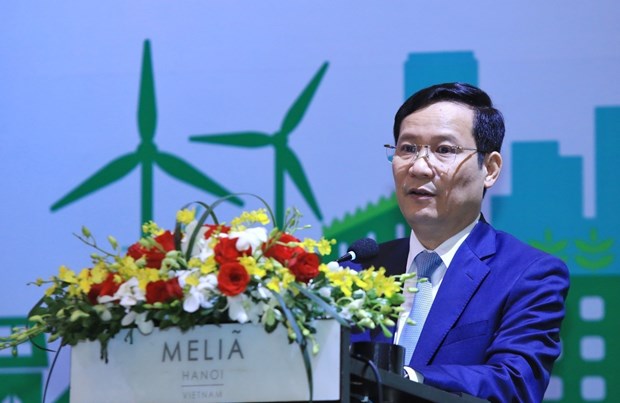
How to orient investment flows to the right direction so as to secure fast and sustainable development for countries was the focus of a business roundtable held in Hanoi on October 26.
The event was part of a series of meetings of the Organisation for Economic Cooperation and Development (OECD) – Southeast Asia Business Network, within the framework of the OECD Southeast Asia Ministerial Forum 2023 held by the Vietnam Chamber of Commerce and Industry (VCCI), the Ministry of Foreign Affairs, the OECD, the ASEAN Business Advisory Council (ASEAN BAC), and relevant organisations.
VCCI Chairman Pham Tan Cong pointed out that the world is changing fast and complicatedly with unprecedented developments. As climate change has caused considerably negative impact on the planet’s development and survival, climate actions have become a direction in the development strategy of every country and region. Each country, organisation, and business is exerting efforts to harmonise economic growth and energy consumption increase with greenhouse gas emission reduction.
In that context, sustainable investment attraction is an important target that has great influence on the development of each country, especially Southeast Asian ones, he noted.
Cong said green growth, circular economy development, and net zero emissions by 2050 are priorities of Vietnam in the coming time. To that end, the country is focusing on perfecting the legal framework for green growth and digital transformation and accelerating energy transition. This process depends on not only businesses’ efforts or the State’s assistance but also support from people and the official and last beneficiaries of value chains.

Addressing the event, Reema Bhattacharya, head of Asia Risk Insight at global risk intelligence company Verisk Maplecroft, said despite massive efforts and finance invested in the programmes aimed at realising the Sustainable Development Goals, observable results from businesses haven’t been recorded. This is a challenge and also a chance for OECD member countries to further boost actions in the future.
There is still a lack of a framework or a method for assessing and measuring risk levels in the building of socio-economic development strategies in each country. This work needs to be carried out seriously and substantively so that investors can gain a panorama before conducting proper and feasible shift of their investment flows, she added.
Dang Thuy Ha, Deputy General Director of the Traphaco JSC, said that during the two years of the COVID-19 pandemic, businesses have become further aware of positive impact of sustainability-oriented production and business models. Sustainability is not only the “lodestar” for businesses’ development in normal conditions but also acts as the “anchor” for companies to stay firm and the “helm” for them to adapt to and recover from the “tsunamis” of crises.
Like many other businesses of OECD member countries, Traphaco hopes for reforms in proper policies and partnerships as a demonstration of the cooperation commitment within the OECD, she added./.
(VNA)




